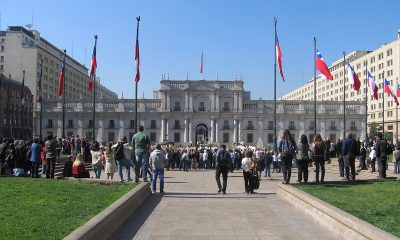South America
Rejection of proposed Chilean constitution seen as a victory for LGBTQ rights
55.8 percent of voters opposed second draft
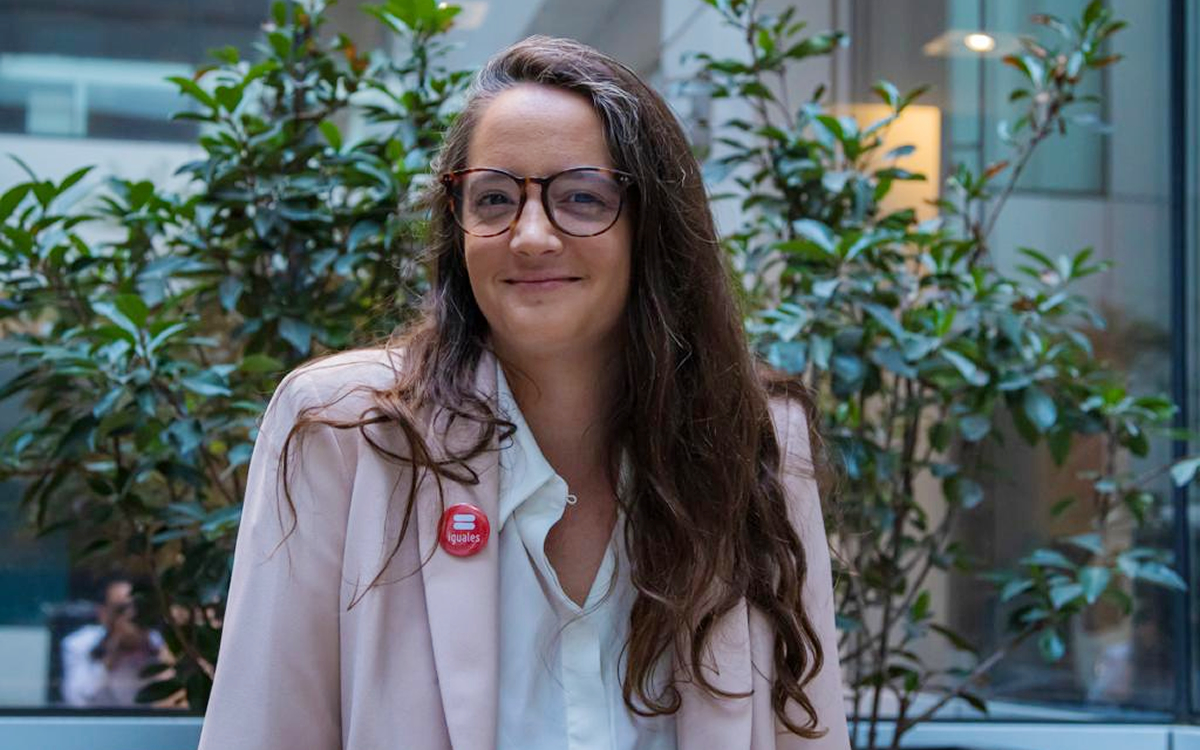
Chile has experienced a crucial turn in its political landscape with the results of Sunday’s referendum in which voters rejected a proposed constitution that generated concern among LGBTQ activists.
Chileans rejected the draft constitution with 55.8 percent of voters supporting the “against” option. Turnout was 84.5 percent.
The Republican Party, founded by the far right-wing former presidential candidate José Antonio Kast, led the effort behind the proposed constitution. Sunday marked the second time that Chileans went to the polls to decide on a new constitution — the process began after social protests rocked the country in October 2019.
A year after the unrest, more than 80 percent of voters were in favor of replacing the constitution, but the first attempt that independents and left wing sectors led, failed in September 2022, when 62 percent of Chileans voted “rejection.”
With the second rejection on Sunday, voters punished the right wing after opposing independents and the left wing. This result ended a cycle of euphoria after the social unrest with a high initial percentage for change. The current constitution, which took effect in 1980 during Augusto Pinochet’s regime and has undergone several changes, remains in force.
María José Cumplido, executive director of Fundación Iguales, expressed relief, noting the proposed constitution posed a significant risk to the rights of women and sexual diversities.
“We are very relieved,” Cumplido told the Washington Blade.
As to how she perceives these results will affect the LGBTQ community in terms of rights and protections, Cumplido noted more voters consciously objected to the proposed constitution that could have resulted in constitutionalized discrimination. Cumplido, however, pointed out the 1980 constitution does not ensure real protections against discrimination, which means Fundación Iguales will continue to work in this area.
Cumplido highlighted the broad conscientious objection could allow discrimination on religious grounds. She further noted the lack of a sufficiently robust non-discrimination principle and expressed concerns about the weakness of the rights of children and adolescents.
“Conscientious objection has been used to reopen debates that had already been democratically resolved, usually in relation to specific groups, such as LGBTIQ+ (people), whose rights were only recently recognized and whose implementation is sought to be avoided, even if this significantly affects the holders of those rights,” said Cumplido.
Ignacia Oyarzun, president and coordinator of legislation and public policy of Organizando Trans Diversidades, expressed relief over the referendum’s results. Oyarzun emphasized the proposed constitution would have limited the possibility of advancing transgender rights.
“It basically boils down to a sense of tranquility,” Oyarzun pointed out to the Blade. “Understanding that for particularly communities like ours, who are socially vulnerable, who have historically been excluded from political, social spaces, it implied the possibility of being able to suffer, let’s say, even more social and political vexations in relation to a constitution guaranteeing certain possibilities of discrimination directly towards our communities.”
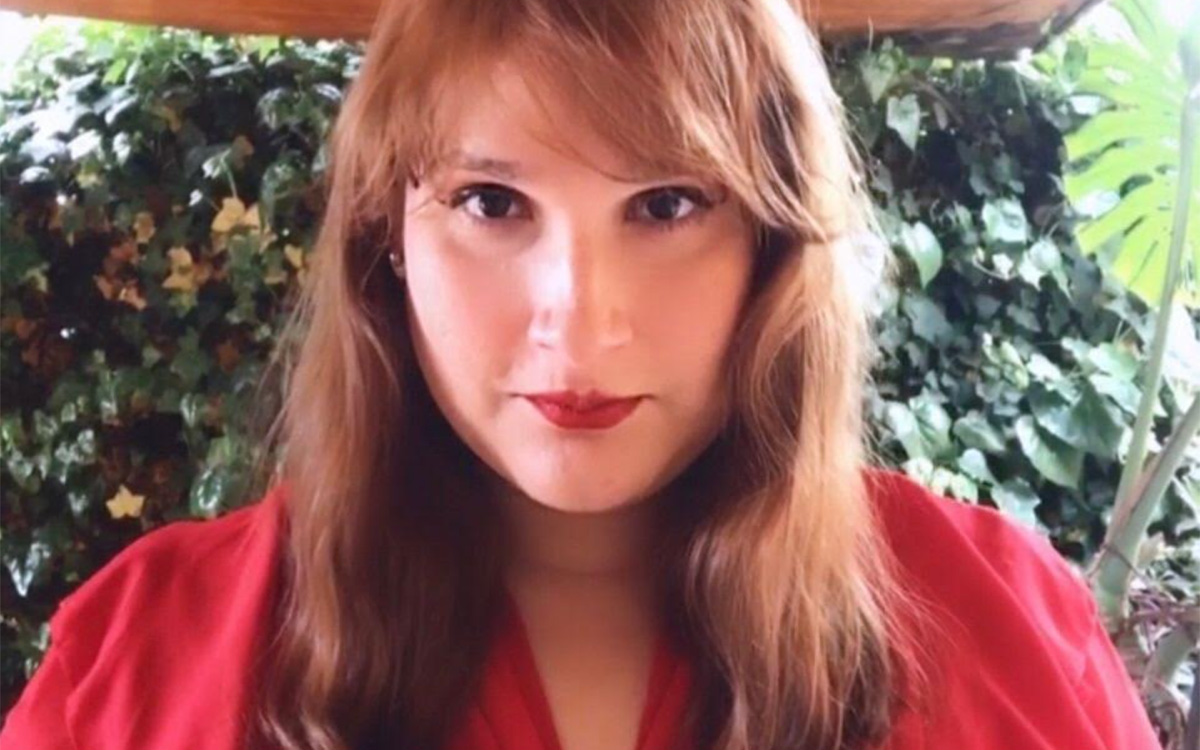
Oyarzun affirmed the results guarantee the continuity of the advances in trans rights and for the broader LGBTQ community. Oyarzun also pointed out the proposed constitution threatened rights that the trans community has won, such as the recognition of gender identity.
“It gave the possibility of going backwards in rights that we have already currently managed to achieve, such as for example identity recognition or for example circulars, in this case of Infancia Circular de Educación 0812, which enables the respect of the gender identity of girls and boys (and their ability to) use (their) social name, (their) use of (a) bathroom, (a) uniform,” Oyarzun emphasized. “All this would have been under the possibility of being eventually repealed or even not respected without any type of sanction for the educational establishments.”
Oyarzun added that “then, particularly these results, what guarantees us in a certain way is not to see a backward step basically in the rights we have acquired and to the continuity, let us say, of the advances we have achieved and the possibility of being able to continue advancing in terms of human and protection rights for our communities.”
In relation to the risk posed by conscientious objection and the lack of protection against discrimination for trans people, Oyarzun highlighted the concern about overt discrimination in educational establishments and stressed it could have led to a worse quality of life and an increase in violence that would directly affecting the life expectancy of trans people.
South America
Argentina government dismisses transgender public sector employees
Country’s Trans Labor Quota Law enacted in 2021

Protests have broken out across Argentina in recent weeks after the dismissal of transgender people from their government jobs.
President Javier Milei’s action is in stark contract with the progress seen in 2023, where the government’s hiring of trans people increased by 900 percent within the framework of the Trans Labor Quota Law that had been in place since 2021.
Among those affected is Sofia Diaz, a “survivor” who shared her testimony with the Washington Blade hours after she traveled from Chaco Province to Buenos Aires to protest her dismissal.
Presentes, an LGBTQ news agency, reported the government dismissed more than 85 trans employees in less than two weeks.
Diaz, 49, holds a degree in combined arts. She joined the National Social Security Administration (ANSES) in 2022 under the Trans Labor Inclusion Law. The layoffs began in January and left many people feeling uncertain and anguished. It was her turn a few days ago.
Diaz in an interview recounted how the situation became progressively more complicated, with difficulties in accessing information about her employment status and the eventual confirmation of dismissals through WhatsApp messages. This government action, according to Diaz, violates the law.
“We were on a Friday, I think on March 24, in the office and we have a WhatsApp group of other colleagues from all over Argentina who entered through the trans labor quota and they tell us if we can get our pay stubs on the intranet,” Diaz recalled. “So, I tried to enter, I could not, I talked to two other colleagues and they told me no, they could not, and so we went to another person. He couldn’t either.”
“Some people told us that it could be a system error. Well, we were never calm, let’s say not how this issue of installing fear and the perversion with which they do it ends,” she added. “This sadism of … inflicting pain and speculating with your misfortune and so on … is something that characterizes Javier Milei’s government.”
Diaz recalled a list of those dismissed from the agency began to circulate from the union in the afternoon. A colleague passed it on to her, “and well, unfortunately I was also on that list.”
“At that moment the whole weekend went by with anguish, crying, and talking with other colleagues from other places, not only trans, but everyone, everyone and everyone,” she said. “On Monday when we went to try to enter, we could not enter with the biometric, which is the thumb we had to use every morning to enter.”
Despite the difficult moment through which she is going, the trans activist stressed to the Blade that she will continue protesting and will even sue the government because her dismissal is illegal and “violates the constitution itself.”
The LGBTQ community and its allies have mobilized and organized demonstrations, highlighting the importance of defending the rights won and fighting against discrimination and exclusion. Diaz emphasized the fight is not only for the people affected today, but also for future generations, saying the historical memory of the struggles for inclusion and social justice must be kept alive.
“The Argentine government thus faces a key challenge in human and labor rights, where public pressure and social mobilization can play a determining role in protecting the rights of LGBTQ+ people,” Diaz said.
South America
Daniel Zamudio murderer’s parole request denied
Raúl López Fuentes convicted of murdering gay man in Chilean capital in 2012
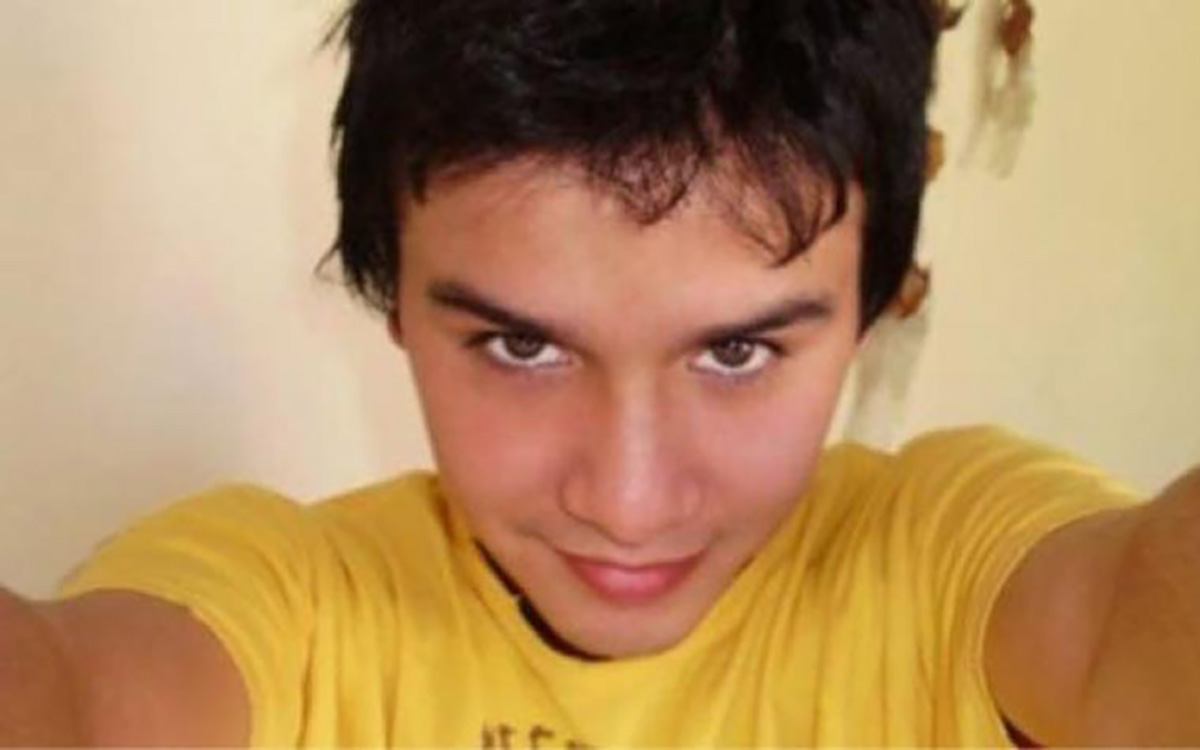
Chile’s Parole Commission on Tuesday rejected a request to allow one of the four men convicted of murdering Daniel Zamudio in 2012 to serve the remainder of his sentence outside of prison.
Raúl López Fuentes earlier this month asked the commission to release him on parole. Zamudio’s family and members of the Movement for Homosexual Integration and Liberation, a Chilean LGBTQ rights group, had gone to court to block the request.
Among the arguments put forward that influenced the commission’s decision is what Movilh categorized as his “high risk of recidivism, linked to the adherence of an antisocial behavior with a tendency to minimize his acts transgressing social norms.”
The commission pointed out that López has psychopathic traits because he is aware of the damage he did to Zamudio and his family.
“In addition, he maintains a high risk of violence, not being advisable to grant the benefit,” the report said.
Zamudio was a young Chilean man who became a symbol of the fight against homophobic violence in his country and around the world after López and three other young men with alleged ties to a neo-Nazi group beat him for several hours in Santiago’s San Borja Park on March 2, 2012. Zamudio succumbed to his injuries a few weeks later.
The attack sparked widespread outage in Chile and prompted a debate over homophobia in the country that highlighted the absence of an anti-discrimination law. Lawmakers in the months after Zamudio’s murder passed a law that bears Zamudio’s name.
López in 2013 received a 15-year prison sentence after he was convicted of killing Zamudio. Patricio Ahumada received a life sentence, while Alejandro Angulo Tapia is serving 15 years in prison. Fabían Mora Mora received a 7-year prison sentence.
Zamudio’s mother, Jacqueline Vera, exclusively told the Washington Blade after the commission rejected López’s request that “we as a family are calmer.”
“Even with my husband we were in a lot of pain at the beginning. It was like a blow of very strong emotions, so we tried to stay calm because we still had to solve the problem,” Vera said. “We had four days to solve it.”
López will have to serve the remaining three years of his sentence before his release.
“I will continue working to improve the Zamudio Law and so that this murderer does not leave prison because he is a danger to society, he does not represent repentance and people like this cannot be free,” she said. “For the same reason, we have to work so that hate crimes have life imprisonment and that is what we will concentrate on.”
South America
Man convicted of killing Daniel Zamudio in Chile seeks parole
Raúl López Fuentes in 2013 sentenced to 15 years in prison

One of the four men convicted of murdering a young gay man in the Chilean capital in 2012 is seeking parole.
Raúl López Fuentes in 2013 received a 15-year prison sentence after he was convicted of killing Daniel Zamudio.
Zamudio was a young Chilean man who became a symbol of the fight against homophobic violence in his country and around the world after López and three other young men with alleged ties to a neo-Nazi group beat him for several hours in Santiago’s San Borja Park on March 2, 2012. Zamudio succumbed to his injuries a few weeks later.
The attack sparked widespread outage in Chile and prompted a debate over homophobia in the country that highlighted the absence of an anti-discrimination law. Lawmakers in the months after Zamudio’s murder passed a law that bears Zamudio’s name.
Patricio Ahumada received a life sentence, while López and Alejandro Angulo Tapia are serving 15 years in prison. Fabían Mora Mora received a 7-year prison sentence.
López has asked the Seventh Santiago Guarantee Court to serve the last three years of his sentence on parole. Zamudio’s family and Jaime Silva, their lawyer who works with the Movement for Homosexual Integration and Liberation, oppose the request.
Movilh represented Zamudio’s family after his murder.
Zamudio’s mother, Jacqueline Vera, during an exclusive interview with the Washington Blade said López’s petition “provoked all the anguish, all the commotion of his time.”
“It was very cruel because in fact two days before we were at Daniel’s grave, where it was 12 years since his death and the beating,” said Vera. “He really does not deserve it.”
“We have gone through very difficult moments,” she added.
The mother, who later created a foundation to eradicate discrimination in Chile, was emphatic in indicating that she and her family “do not accept the release of this guy because he is a danger to society and a danger to ourselves.”
“At the last hearing where they were sentenced, they told us that we are going to remember them when they get out,” said Vera. “They threatened us with death. There is a video circulating on social networks where they were in front of me and they laughed and made fun of me. They told me that I remembered that I had three more children.”
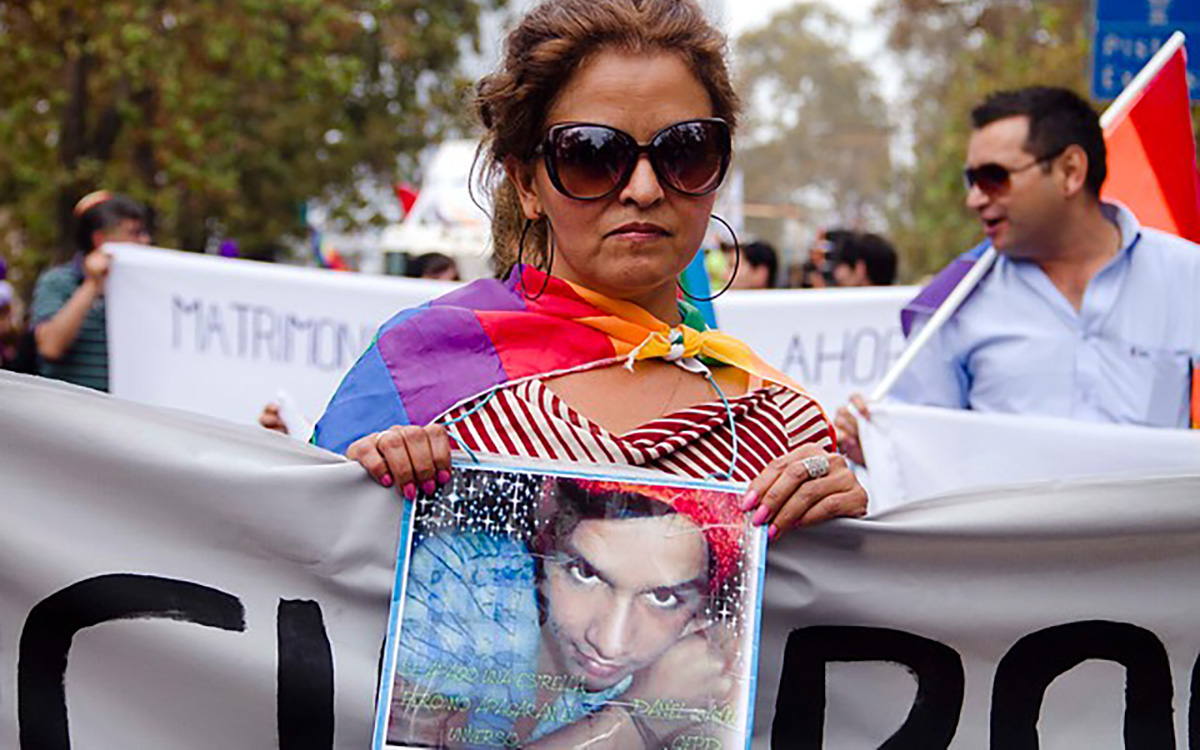
Regarding the possibility that the Chilean justice system will allow López to serve the remaining three years of his sentence on parole, Vera said “with the benefits here in Chile, which is like a revolving door where murderers come and go, it can happen.”
“In any case, I don’t pretend, I don’t accept and I don’t want (López) to get out, I don’t want (López) to get out there,” she said. “We are fighting for him not to get out there because I don’t want him to get out there. And for me it is not like that, they have to serve the sentence as it stands.”
LGBTQ Chileans have secured additional rights since the Zamudio Law took effect. These include marriage equality and protections for transgender people. Advocacy groups, however, maintain lawmakers should improve the Zamudio Law.
“We are advocating for it to be a firmer law, with more strength and more condemnation,” said Vera.
When asked by the Washington Blade about what she would like to see improved, she indicated “the law should be for all these criminals with life imprisonment.”
-

 State Department4 days ago
State Department4 days agoState Department releases annual human rights report
-

 District of Columbia2 days ago
District of Columbia2 days agoCatching up with the asexuals and aromantics of D.C.
-

 South America2 days ago
South America2 days agoArgentina government dismisses transgender public sector employees
-

 Politics5 days ago
Politics5 days agoSmithsonian staff concerned about future of LGBTQ programming amid GOP scrutiny



